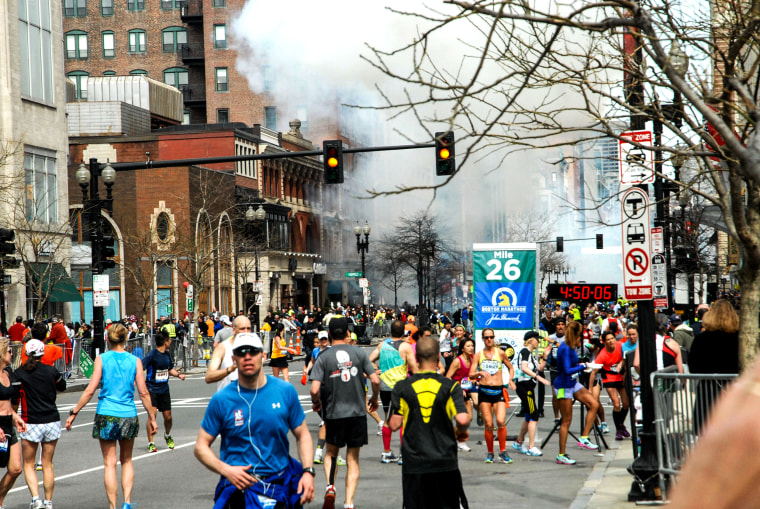WASHINGTON — The Supreme Court on Friday reimposed the death sentence for Boston Marathon bomber Dzhokhar Tsarnaev, reversing a federal appeals court ruling that had voided it.
By a vote of 6-3, the court rejected defense claims that the judge at Tsarnaev’s 2015 trial improperly restricted the questioning of prospective jurors and was wrong to exclude evidence of a separate crime two years before the bombing.
Tsarnaev was convicted of joining his older brother, Tamerlan, in planting and detonating two pressure cooker bombs at separate spots near the marathon finish line in 2013. The blasts killed three people and left hundreds of others with serious injuries.

In a second phase of the trial, the same jury recommended capital punishment for the deaths of the two people killed by the bomb the younger Tsarnaev placed. His older brother was killed in a shootout with police four days after the bombing.
A three-judge panel of the U.S. Court of Appeals for the 1st Circuit ordered a new sentencing hearing, ruling unanimously that U.S. District Judge George O’Toole Jr. failed to allow enough questioning of potential jurors about how closely they followed extensive news coverage of the bombings.
But the Supreme Court disagreed on that issue. Writing for the majority, Justice Clarence Thomas said trial judges have broad discretion in deciding what questions to ask prospective jurors. “That discretion does not vanish when a case garners public attention.”
The appeals court also said the judge should have allowed Tsarnaev’s lawyers to bring up a 2011 triple homicide in the Boston suburb of Waltham that investigators suspected was committed by Tamerlan Tsarnaev. The defense wanted to use the earlier crime to show that the younger Tsarnaev was dominated by his violent older brother and therefore was less responsible for the bombings, because of his influence.
Tsarnaev’s lawyers did not deny his role in the marathon bombing, but they said he was easily manipulated by his brother, who they called the mastermind.
The Justice Department said the evidence of who committed the Waltham killings was unreliable. Tamerlan Tsarnaev and another man suspected of having been at the crime scene were both dead by the time of the bombing trial, so there was no way to know for certain what happened.

Thomas said the appeals court was also wrong on that point. Federal death sentence hearings “are not evidentiary free-for-alls” and judges may exclude evidence if it would create unfair prejudice or confuse and mislead the jury, he wrote.
The three dissenting justices, Stephen Breyer, Sonia Sotomayor, and Elena Kagan, said the judge should have allowed the jury to hear the evidence of the Waltham murders.
“It was critically important to Dzhokhar’s mitigation defense,” Breyer wrote, because it was evidence of the older brother’s violent nature and capacity to influence the younger Tsarnaev.
The government also argued that holding a new sentencing hearing would further traumatize the Boston community, forcing the bombing victims to once again take the stand to describe the horrors that Tsarnaev inflicted on them.
After Friday's ruling, Joseph Bonavolonta, the special agent in charge of the FBI's Boston office, said “our hearts are with the victims and survivors in this case who have suffered through so much in the last nine years and have demonstrated amazing strength and resilience."
As a result of the ruling, Tsarnaev, who is now 28, will remain on death row at Colorado’s supermax prison. Although Attorney General Merrick Garland ordered a moratorium on executions in the federal system, the Biden Justice Department nonetheless took the same position it did under the Trump administration, defending the death sentence for the bombing.
Garland’s order did not stop prosecutors from seeking the death penalty in the case.
